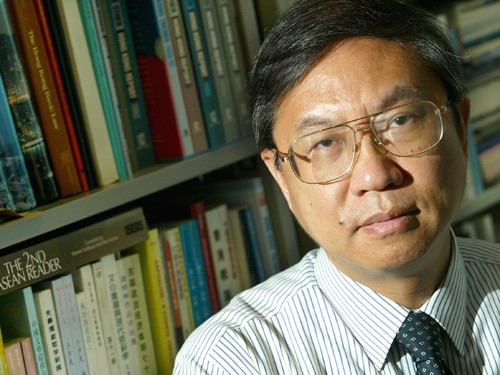China Fear of Echoing PostPlaza Japan Limits ‘Hyundai Accord’ Bloomberg Business
Post on: 16 Март, 2015 No Comment

Zhou Xiaochuan, governor of the People’s Bank of China (PBOC). Photographer: Andrew Harrer/Bloomberg
Oct. 22 (Bloomberg) — China’s reluctance to deliver “shock therapy” through a faster appreciation of the yuan may be a bid to avoid repeating history: Japan’s.
As Group of 20 finance chiefs begin talks today in Gyeongju, South Korea, China is deflecting foreign pressure to fast-track the yuan’s gains after limiting them to about 2 percent against the dollar since a June vow to embrace more flexibility.
Chinese officials link their resistance against an even quicker rise to fears it would hurt their economy the same way Japan’s sank after 1985’s Plaza Accord shot the yen higher. As Ministry of Commerce spokesman Yao Jian said Oct. 15, that “rapid currency appreciation led exports to plunge, unemployment and economic slowdown” and easier interest rates which caused asset bubbles.
“There are uncomfortable similarities” between 1980s Japan and modern China, said Ronald McKinnon, who teaches economics at Stanford University in California and whose 1997 book “Dollar and Yen” was published in China at the urging of former People’s Bank of China official Li Ruogu. “Chinese officials have read about Japan so they know what happened.”
‘Sound Bites’
That means the G-20 meeting will conclude tomorrow with “lots of sound bites” about cooperating and no pledge to intervene, leaving the yuan to a “modest appreciation” to 6.55 per dollar at the end of this year and 6.20 at the end of next year, said Mansoor Mohi-uddin, the Singapore-based head of global currency strategy at UBS AG, the world’s second biggest currency trader. The yuan traded at 6.65 yesterday.
U.S. Treasury Secretary Timothy F. Geithner and People’s Bank of China Governor Zhou Xiaochuan are among the G-20’s finance ministers and central bankers crafting an agenda for the Nov 11-12 summit of leaders in Seoul.
They will agree to avoid “competitive undervaluation” of their currencies, according to an official from a G-20 country, citing a draft of their statement to be released tomorrow. The U.S. is pushing the G-20 to agree on a statement of cooperation on exchange-rate issues, either this weekend or in Seoul, a U.S. official said.
Tensions have escalated amid concern policy makers are looking to weaker currencies to fuel growth by spurring exports. China is accused of undervaluing the yuan, while a shift toward even easier monetary policy in the U.S. and other industrial nations is blamed for depressing their exchange rates. Caught in the middle are emerging markets with floating currencies, such as Brazil and South Korea, which are resorting to intervention or capital controls to remain competitive.
Chinese Expansion
Pressure grew on China to let the yuan rise more rapidly as data yesterday showed its economy expanded 9.6 percent in the third quarter and inflation accelerated to the fastest pace in almost two years. China’s central bank unexpectedly raised interest rates this week for the first time since 2007.
Bank of England Governor Mervyn King said Oct. 19 that officials must strike a “grand bargain” to rebalance the world economy while questioning whether the G-20 would rise to the challenge. South African Finance Minister Pravin Gordhan said the same day there is a “serious danger of competitive devaluations” and “if we continue on this road, it will result in a trade war.”
New Accord
The friction is prompting calls for a new version of the Plaza Accord, an agreement signed by the Group of Five to weaken the dollar. Charles Dallara, who helped write the agreement and is now managing director of the Washington-based Institute of International Finance, told Bloomberg Television on Oct. 14 that officials must “move past this bickering, unilateralism, bilateralism and finger pointing which has unfortunately characterized much of the last few weeks and try to find some common ground on currencies.”
Douglas Borthwick, head of foreign-exchange trading at Stamford, Connecticut-based Faros Trading, says there’s about a 50 percent chance of an agreement in which China sets a timeframe to revalue the yuan by a specific amount.
“China’s the one in the driving seat here so it’s the one that decides,” said Borthwick, who suggests any framework be called the “Hyundai Accord” after the Gyeongju hotel the media will gather in this week. Faros executes currency transactions on behalf of hedge funds and institutional clients.
Japan’s Bubble
Japan’s experience nevertheless suggests history may not be repeated this weekend. In Japan, those who believe the yen’s rise following Plaza Accord lies behind Japan’s two decades of weak growth subscribe to the view of “endaka fukyo” or “high yen recession.” Following the Sept. 22 1985 deal, the yen strengthened from about 240 per dollar to about 140 by the end of the decade and then to near 83 by 1995.
As the currency rose, Japanese authorities tried to protect the economy by easing monetary and fiscal policies, with the Bank of Japan’s discount rate halving to 2.5 percent by 1987. Such stimulus helped drive the Nikkei 225 to almost 40,000 from 12,500, while property prices soared. When the Bank of Japan started tightening monetary policy in 1989 the bubbles burst, plunging the economy into two decades of rippling recessions and deflation.
“It’s clear the yen’s appreciation dampened the nation’s power and potential growth,” said Susumu Kato, chief economist for Japan at Credit Agricole CIB and CLSA in Tokyo. “The stronger yen prompted Japanese companies to shift their production overseas, limiting chances for investment and employment at home.”
Not all agree, arguing Japan was also hobbled by failure to rebalance the economy toward domestic consumption sooner, a delay in raising interest rates until bubbles had formed, and waiting too long to tackle banks with non-performing loans.
‘Shock Therapy”
Japanese “financial companies were coping with a lot of difficulties” other than the yen, Toshihiko Fukui, the Bank of Japan’s former governor, said in an Oct. 11 interview.
The debate now is whether China would repeat Japan’s history if it let the yuan surge. Chinese central bank governor Zhou Xiaochuan signaled such concern Oct. 8 when he said his nation must avoid the “shock therapy” of excessive yuan appreciation and that “very fast” gains probably wouldn’t end global economic imbalances. Yuan gains of 20 percent to 40 percent would exacerbate Chinese unemployment and cause social upheaval, according to Premier Wen Jiabao.
“If we recall Japan’s economic policies in the 1980s, many scholars and economists said that led to economic disorder and it’s a lesson to take,” Ministry of Commerce spokesman Yao said.

Trade Surplus
Japan’s experience suggests a stronger yuan wouldn’t necessarily mean a lower trade surplus because investment in China could decline if the country is viewed as more expensive, said Stanford’s McKinnon. Financial companies would also struggle to adapt to having to buy and hold more dollars, he said.
Linking China to Japan of the late 1980s is a false analogy, says Michael Pettis, a finance professor at Peking University. He notes the “real lesson from Japan for China” is to strengthen domestic demand sooner and that once the currency does rise not to resort to lower interest rates to spur investment. Failure to heed that raises, not lessens, the chances of a “lost decade” for China, says Pettis, who was formerly a managing director of Bear Stearns Cos.
There are other reasons not to expect another currency accord that’s backed with money, not least that governments now wield less power in a market worth $4 trillion a day compared with $1.7 trillion in 1998.
Louvre Accord
Such deals can also run out of control. The 1987 Louvre Accord was required to reverse the dollar’s drop and U.S. officials are unlikely to want a similar run on their currency in case it spooks buyers of Treasuries.
An alternative may be for nations to begin setting targets for their current-account balances as the U.S. proposes. Bank of Canada Governor Mark Carney said Oct. 20 that the G-20 wants mechanisms and timelines for greater currency flexibility.
China may still be moving in the direction of a rising yuan, having allowed it to gain the most since 2005 in September and rise by about 25 percent in five years. Since 1999, the yuan’s performance has been the fourth best among 25 emerging markets tracked by Bloomberg and the median forecast of 17 analysts surveyed by Bloomberg News is for it to climb to 6.32 per dollar by the end of 2011.
If they are unable to get China to agree to strengthen the yuan aggressively, fellow G-20 countries might continue to take action with their own currencies and implement capital controls to try to compete until leaders meet next month.
“A new Plaza Accord of coordinated intervention seems unlikely,” said Mohi-uddin. “That means unilateral actions will continue and foreign exchange volatility will rise.”
Related News and Information: Top bond-market articles:
To contact the reporter on this story: Simon Kennedy in Gyeongju, South Korea at skennedy4@bloomberg.net
To contact the editor responsible for this story: John Fraher at jfraher@bloomberg.net














